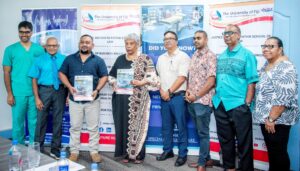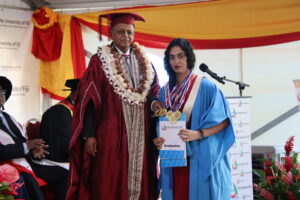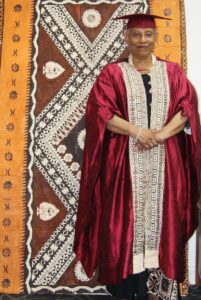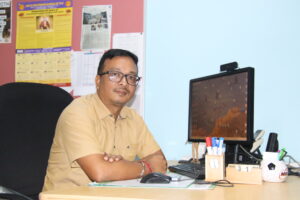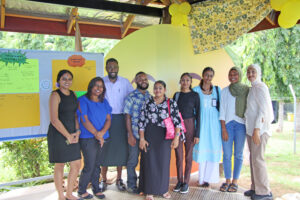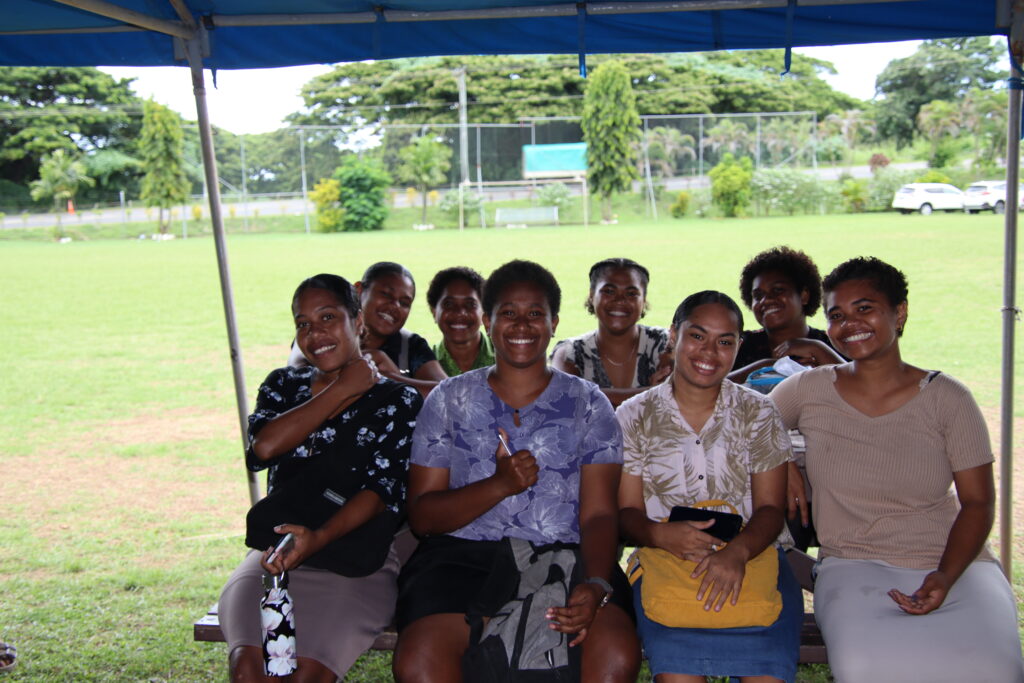The University of Fiji and Pacific Specialist Healthcare (PSH Hospitals) sign Memorandum of Understanding for medical education for UniFiji’s Umanand Prasad School of Medicine and Health Sciences
The University of Fiji and the Pacific Specialist Healthcare (PSH Hospitals) today signed a far-reaching Memorandum of Understanding which covers support for supervised medical attachments, clinical training, specialization, joint academic research and a proposed pharmaceutical research collaboration.
The MOU covers a period of three-years and will mainly be executed in the PSH Hospitals facility in Nadi.
The Vice Chancellor of the University of Fiji Professor Shaista Shameem expressed her appreciation to the founder and CEO of PSH Hospitals Mr Parvish Kumar for reaching out to the University of Fiji’s Umanand Prasad School of Medicine and Health Sciences (UPSMHS) to offer a collaboration which will allow UniFiji’s medical students to take full advantage of the high-level medical training provided at PSH.
The MoU covers both MBBS and Nursing programmes of the University.
UPSM offers MBBS and Nursing programmes at its Saweni and Samabula Campuses. Professor Shameem said the MoU will also provide avenues for working collaboratively with UniFiji’s medical academics in Saweni and Suva on research topics of mutual interest, particularly in specialist areas of medicine.
In detail, the MoU will achieve the following:
Firstly, to provide student attachments and hands-on clinical training opportunities under the supervision of highly qualified specialist professionals for different medical specialization and hospital protocols.
Secondly to enhance UPSM lecturers’ further education by providing specialist doctors as guest lecturers on topics of mutual interest, and hosting case discussions, seminars, workshops. The MoU covers skill-based and hospital protocol training for students. Professor Shameem said the University also hoped to advance its post-graduate education at UPSM;
Thirdly, in an area of particular interest to the University’s management, the MoU covers collaboration to integrate telemedicine into medical training and patient care. This means developing structured telemedicine modules for student training, allowing students and staff to observe and participate in virtual patient consultations under supervision while complying with all ethical and legal frameworks for telemedicine consultations.
Professor Shameem said that telemedicine represented the 21st century exponential growth area in modern medicine and the University wanted to provide opportunities for its students in all types of medical innovations to be future ready.
In addition, UniFiji and PSH Hospitals will also work closely together in pharmaceutical research support and clinical trials subject to the necessary legal approvals. Professor Shameem said UniFiji was encouraged that PSH Hospitals would include it in their innovative developments subject to ethical considerations that apply to the University.
UniFiji students and staff will gain exposure at PSH Hospitals in cardiology, for example in angioplasty (stenting), angiography, and in neurosurgery operations.
For the University’s nursing students, additional training will be provided by PSH Hospitals in practical, patient-centered, learning thus strengthening UniFiji’s current nursing training and, more widely, Fiji’s nursing workforce.
Professor Shameem said that through the MoU the medical professionals of both PSH Hospitals and UniFiji are provided with an excellent and far-sighted opportunity to work closely together in modern medicine and medical education to improve the health status of the people of Fiji and the region.
“We know that the PSH Hospitals offers a range of surgical specializations and is willing to share its expertise in all areas of healthcare to both students and staff of the University. This is indeed an admirable endeavour for which we are grateful to the CEO and staff of PSH Hospitals,” she said.
PSH Hospitals CEO Mr. Parvish Kumar said that the initiative aims to inspire UniFiji students to become future leaders in the medical profession.
“We should look at producing our own medical professionals and through this collaboration we are really hoping that we are able to inspire students,” he said.
Mr. Kumar explained that while traditionally medical colleges in Fiji have been associated with public hospitals in Suva or Lautoka for clinical attachments, this partnership will offer students a unique experience.
“PSH Hospitals has been spearheading the development of medicine and healthcare technologies in Fiji. We have systems and technology here in Fiji which are not available anywhere in the public sector. So, with this collaboration and this vision, your students will now get that exposure into technology and surgical procedures which is not currently available locally,” he said.
Mr. Kumar added that this partnership would give UniFiji students a competitive edge over others in the field.
“We are hoping that when they finish their MBBS, they’ll be so focused that they’ll aspire to specialize in interventional cardiology, open-heart surgery, or advanced surgery. For this reason, we are very happy to be signing this MoU,” he said.
Dr Abhijit Gogoi, Associate Professor at the University of Fiji’s Umanand Prasad School of Medicine and Health Sciences, further elaborated on the partnership, highlighting its significance in strengthening healthcare education and delivery in Fiji.
He said the collaboration between UniFiji and PSH Hospitals is designed to provide UPSM students with valuable hands-on clinical attachments across various medical specialties, allowing them to gain practical experience under the supervision of qualified medical professionals. In addition, the partnership will enhance academic learning through specialist guest lectures, case discussions, seminars, workshops, and skill-based training sessions facilitated by PSH Hospitals medical experts.
Dr Gogoi also noted that a key component of the agreement is the integration of telemedicine into medical training and patient care, enabling students to be part of virtual consultations and digital health innovations that will benefit people living in remote areas. He said the partnership reflects a shared commitment between the University of Fiji and PSH Hospitals to advance healthcare education, promote innovation, and improve healthcare accessibility and service delivery for the people of Fiji.
This partnership marks a significant step forward in advancing medical education and healthcare innovation in Fiji, reinforcing UniFiji’s commitment to producing skilled, future-ready medical professionals for the nation and the region.


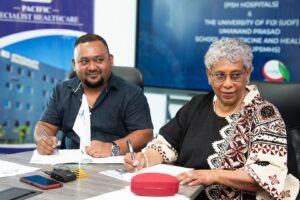
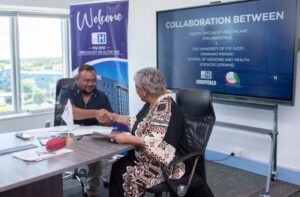
![]()

